Research Reports
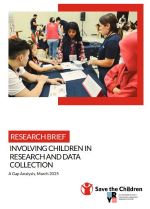 | Involving Children in Research and Data Collection, A Gap Analysis This report explores the current landscape of involving children in research and data collection. It highlights the importance of child participation as a means to inform programs, policies, and advocacy efforts, emphasising the need for ethical and meaningful engagement. The brief examines three primary approaches to child participation in research: consultative, collaborative, and child-led, each with distinct roles and benefits. It also identifies the gaps in existing resources, such as limited guidance on adapting tools for diverse contexts, engaging marginalised groups, and ensuring child safeguarding. The report underscores the necessity for more inclusive, culturally sensitive, and practical resources to support researchers and practitioners. Key recommendations include developing adaptable tools, enhancing inclusivity, and strengthening children’s involvement across all research phases. The brief concludes by advocating for co-designed research resources that prioritise children’s perspectives and experiences, ensuring their meaningful participation in research processes. This is a publication from Save the Children International produced in partnership with Western Sydney University's Young & Resilient Centre. HADRI is part of the team of authors. |
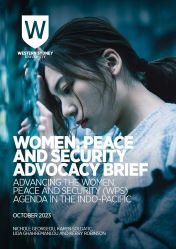
| Women Peace Security This report presents an overview of the evolution and impact of United Nations Security Council Resolution 1325 (UNSCR 1325) on Women, Peace and Security (WPS). In acknowledging the unique experiences of women and girls in conflict, UNSCR 1325 emphasises the crucial role of women's participation at all stages of peace processes. Subsequent UNSC Resolutions have further entrenched the WPS agenda in international relations, aligning with discourses of human rights, human security, and the UN Sustainable Development Goals (SDGs). UN member states are urged to develop National Action Plans (NAPs) to advance the WPS agenda and gender equity through gender mainstreaming. The report highlights NATO's efforts to embed the WPS agenda across its operations, and the adoption of the NATO/Euro-Atlantic Partnership Council (EAPC) Policy on Women, Peace and Security 2021–2025. Lessons from NATO's experience in implementing the WPS agenda are invaluable for Australia and other Indo-Pacific states. This advocacy brief summarises discussions held at Western Sydney University on the 21st anniversary of UNSCR 1325 on 31 October 2022, analysing the progress of the WPS agenda through the lenses of various cross-cutting themes. It offers recommendations for Australian and regional policymakers to expand the WPS agenda in four key areas: gender and sexual diversity; disability; education; and technology. |
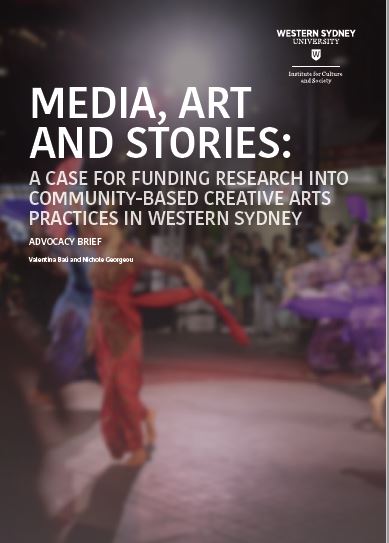
| Media, Art and Stories Media, Art and Stories:A sector-wide consultation on research and practice in community development with Culturally and Linguistically Diverse (CALD) groups in Western Sydney was an initiative designed by Western Sydney University researchers to deepen understanding and enhance engagement between the University and creative arts organisations in Western Sydney. This brief provides practical recommendations for how universities and community-based organisations can join forces to implement creative arts projects with CALD groups, with the integration of evaluative research components, aiming at enhancing the lives of the people of Western Sydney. |
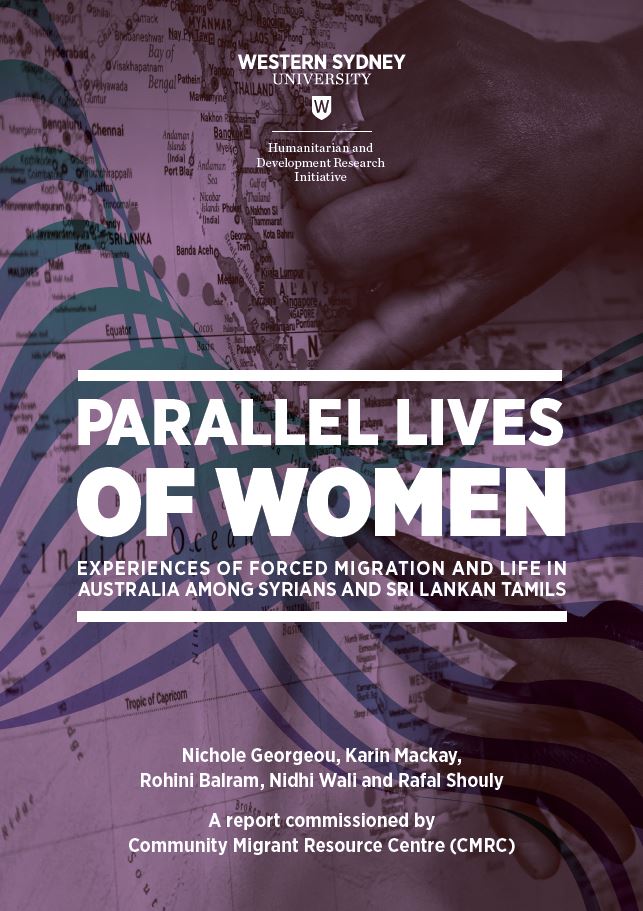
| Parallel Lives of Women: Experiences of Forced Migration and Life in Australia Among Syrian and Ari Lankan Tamils The Parallel Lives of Women (TPLW) research project is a collaboration between researchers from Western Sydney University's Humanitarian and Development Research Initiative (HADRI), the Community Migrant Resource Centre (CMRC) and SydWest Multicultural Services (SydWest). The focus of the study was to understand how immigration policy intersects with the different policy areas of migration, housing, education, and health to affect the cultural well-being of two cohorts of women who are subject to vastly different visa restrictions while living in Australia. These were: |
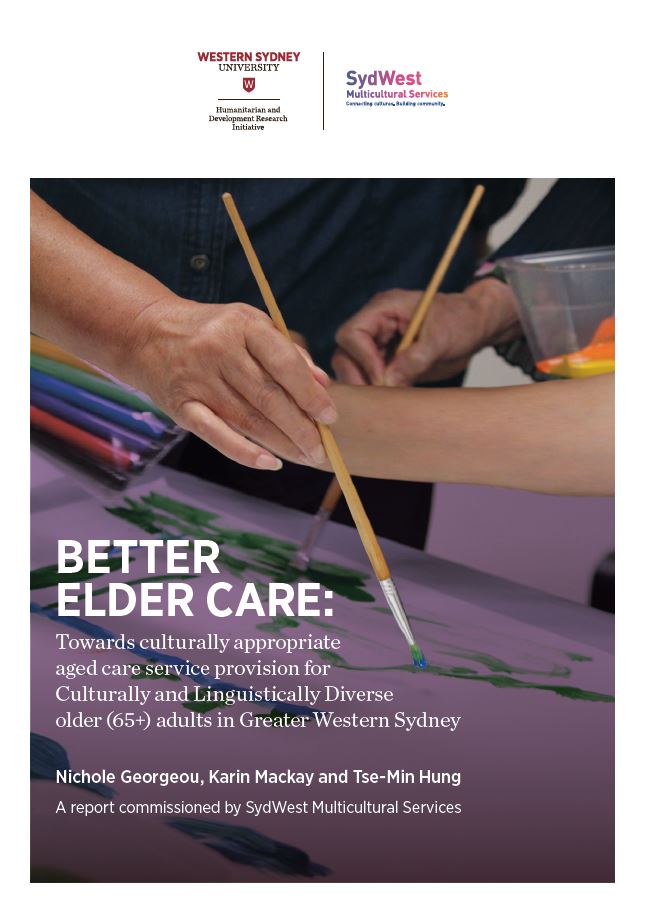
| Better Elder Care: Towards Culturally Appropriate Aged Care Service Provision for Culturally and Linguistically Diverse Older (65+) Adults in Greater Western Sydney | Western Sydney University ResearchDirect
|
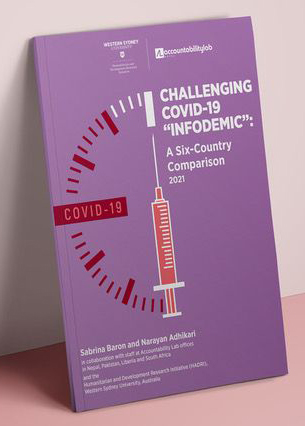
| Challenging COVID-19 "Infodemic": A Six-Country Comparison 2021 (PDF, 5791.62 KB) (opens in a new window) A six-country analysis of the mis-information and disinformation surrounding COVID-19 vaccines that promotes vaccine hesitancy and suspicion propagated by individuals, groups and sometimes even by government officials. This research was co-authored by anthropology student Sabrina Baron and Narayan Adhikari, Director of Accountability Lab Nepal as part of a Western Sydney University, Social Sciences International Placement (SSIP) project. |
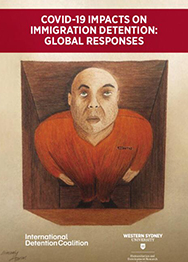
| COVID-19 Impacts on Immigration Detention: Global Responses (PDF, 3395.32 KB) (opens in a new window) This edited collection brings together a range of country reports documenting the impacts of COVID-19 on immigration detention practices globally. Compiled jointly by the International Detention Coalition and the Humanitarian and Development Research Initiative at Western Sydney University, this report highlights how governments and civil society organisations have responded to the practice of immigration detention. |
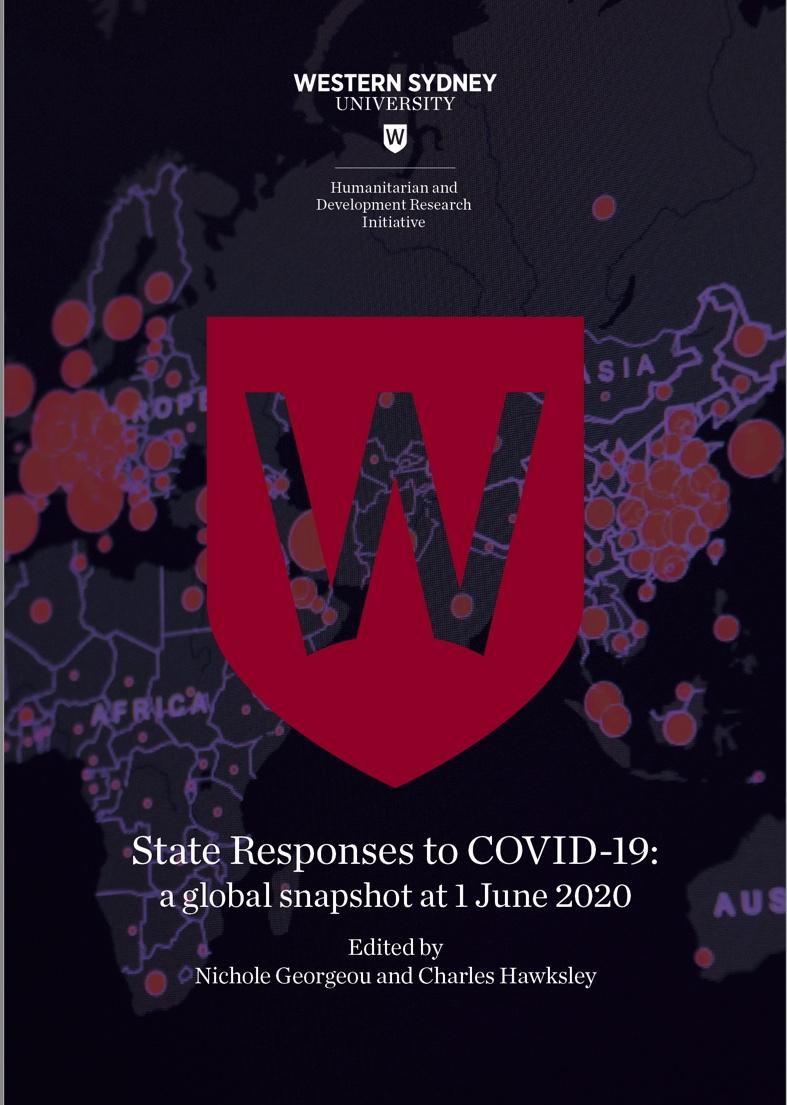
| State responses to COVID-19: A global snapshot at 1 June 2020 (opens in a new window) This collection represents the work of over 50 academic and professional contributors across the world on the specific ways in which governmental authorities have attempted to deal with the COVID-19 pandemic, including the steps they have taken to slow the spread of infection, and to mitigate the effects on their economies of government imposed restrictions on movement and work. It also includes ten ‘issues papers’ that detail the related effects of COVID-19 on vulnerable groups. These contributions cover issues as diverse as: the role of NGOs in assisting domestic violence survivors in the Pacific Islands; NGO support for undocumented migrant workers in Switzerland and Italy; the perils faced by US health care workers; the plight of non-citizens in Australia; human trafficking and modern slavery; and the return of many hundreds of thousands of workers to Nepal. |
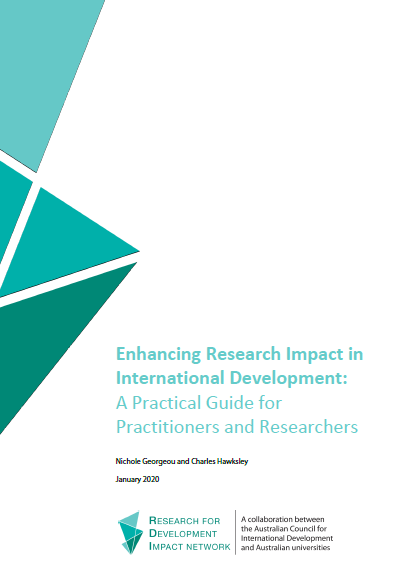
| Enhancing Research Impact in International Development: A practical guide for practitioners and researchers (PDF, 5409.12 KB) (opens in a new window) The Enhancing Research Impact in International Development (ERIID) guide aims to assist Australian-based practitioners and researchers operating in the development sector to maximise the potential research impact of a project. It outlines approaches, tools and strategies to promote a research project’s outputs and outcomes, and to encourage research uptake and research use. The guide was launched at Development Studies Association of Australia (DSAA) conference in Melbourne on 6 February 2020. |
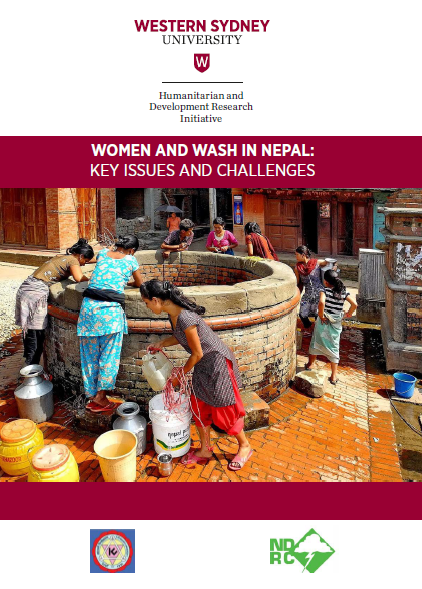
| Women and WASH in Nepal: Key Issues and Challenges (opens in a new window) (PDF, 1161.86 KB) (opens in a new window) This report provides an overview of the main Water Sanitation and Hygiene (WASH) issues in Nepal with a specific focus on the experiences of women, to set out gaps in knowledge and areas in need of future attention. It offers a stocktake of current research, programmatic interventions and knowledge gaps on WASH in Nepal and highlights challenges for the future. Using a case-study approach it illustrates how these WASH-related issues are experienced at the local level in four districts in Nepal, with a policy review setting out the major stages in WASH policy design and implementation since the 1970s. The report concludes by setting out gaps in knowledge and critical areas for future action. |
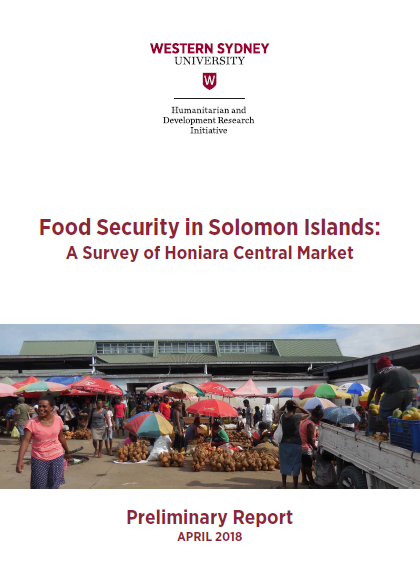
| Food Security in Solomon Islands: A Survey of Honiara Central Market (PDF, 1996.42 KB) (opens in a new window) The Honiara Central Market (HCM) is the largest fresh produce market in Solomon Islands. Understanding the interactions taking place at HCM between rural farmers and urban consumers is important both for rural producers who sell their produce to create wealth, and for urban residents who need fresh food. This report focused on the HCM and examined the factors that affect linkages between rural smallholders and urban consumers of fresh produce. The findings of the study contribute to public policy formation in Solomon Islands on future food supply and food security needs by identifying potential areas where stakeholders (i.e. Solomon Islands Government, development aid donors and non-government organisations (NGOs)) could cooperate to improve availability of, and access to, fresh produce at HCM. |
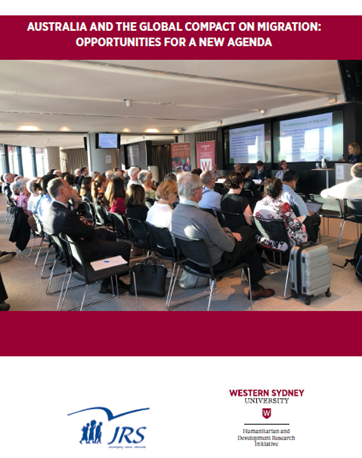
| Australia and the Global Compact on Migration: opportunities for a new agenda (PDF, 2196.08 KB) (opens in a new window)
An Outcomes Report of a public seminar held on 12 November 2018. The seminar brought together key policy makers involved in migration policy and planning at the highest level to consider how the Australian government and civil society actors supports, implements, monitors and reviews the Global Compact on Migration. This seminar was organised in collaboration with Jesuit Refugee services. |

| Diaspora responses in times of Disaster and other crises: Outcomes report (PDF, 5197.4 KB) (opens in a new window)
An Outcomes Report of a public seminar held on 7 April 2018. The seminar focused on the role of diasporas in providing financial and social assistance through knowledge, norms and values to their country of origin and host countries. This seminar provided a great opportunity to collaborate with diaspora organisations and others who work in the field to share ideas and investigate opportunities for action. This was organised in collaboration with Diaspora Learning Network. |
Mobile options:

